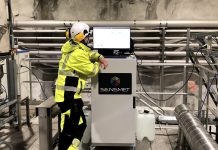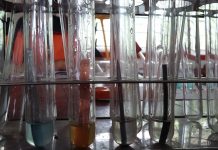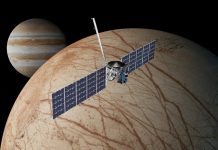Innovation News Network brings you the latest research and innovation news from the fields of science, environment, energy, critical raw materials, technology, and electric vehicles.
Sensmet’s online monitoring technology revolutionises the lithium production sector
Sensmet has pioneered a cutting-edge online monitoring technology that represents a paradigm shift for the lithium production sector.
Ultrafine particles found to be majorly caused by jet engine oils
Researchers analysed ultrafine particles and came across a group of organic compounds which originated from aircraft lubrication oils.
Opportunities and challenges surrounding water for electricity generation
Water-based electricity generation does not only come from hydro dams and tidal barrages, as new technology is being developed.
UK Government funds £7m to decarbonise freight transport
The UK Government has announced it will provide £7m via the freight innovation fund (FIF) to reduce freight transport emissions.
Researchers predict floods with a new, more effective method
A new method for predicting floods is more appropriate for analysing flood frequency in a changing environment.
Using electrochemistry to convert carbon dioxide into organic molecules
A team from Cornell University used electrochemistry to turn carbon dioxide into organic molecules that are vital to pharmaceutical development.
How can we ensure citizens are safeguarded from rising energy prices?
Mariano Votta and Ginevra Varallo explore the energy crisis from the citizen perspective and the essential actions to combat energy prices.
Cathode of lithium-ion batteries stabilised by scientists
Researchers from the East China University of Science and Technology have improved the electrochemical performance of nickel-rich cathodes for use in lithium-ion batteries.
Mass spectrometer ready for integration on NASA’s Europa Clipper spacecraft
SwRI has completed the construction of a mass spectrometer instrument called MASPEX that will now be integrated into NASA’s Europa Clipper.
Intercropping systems can reduce agriculture’s carbon footprint
Researchers have performed a quantitative assessment of intercropping systems by analysing the results of 226 agricultural experiments.











